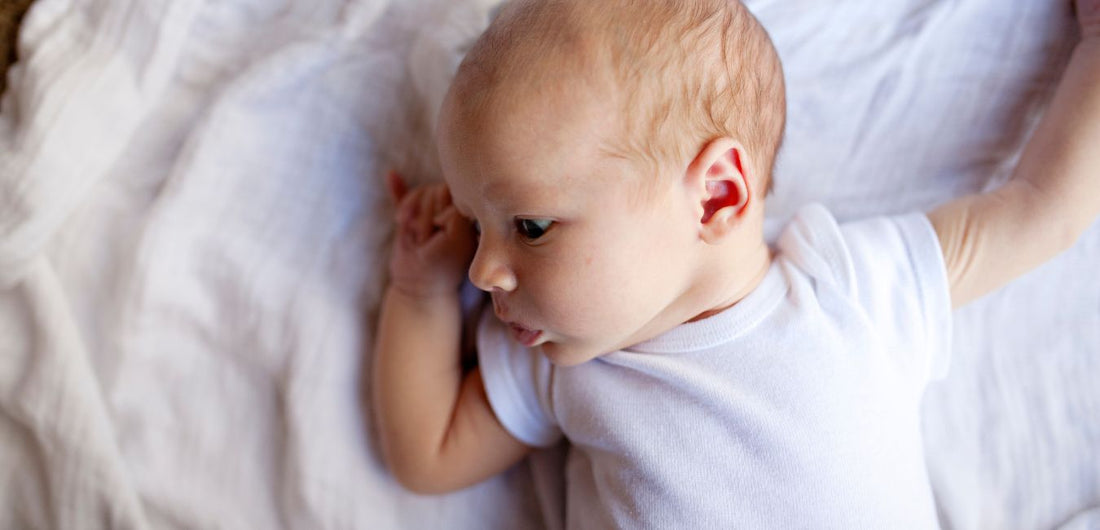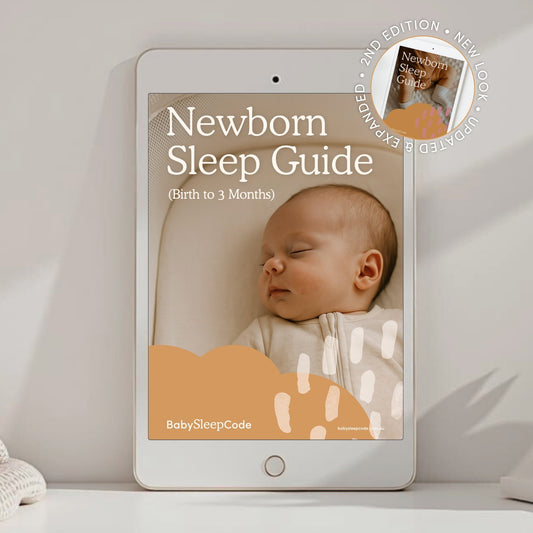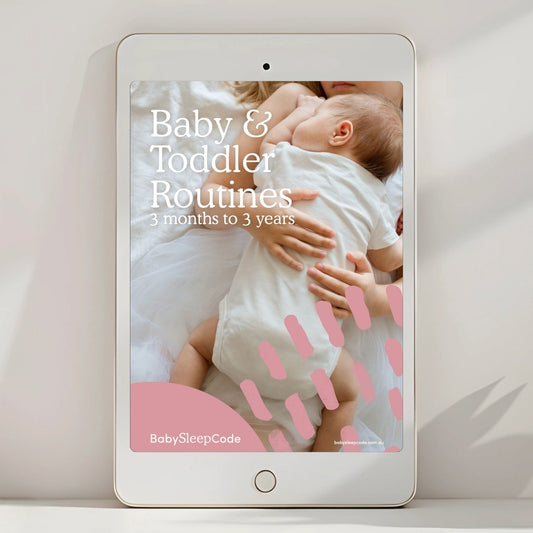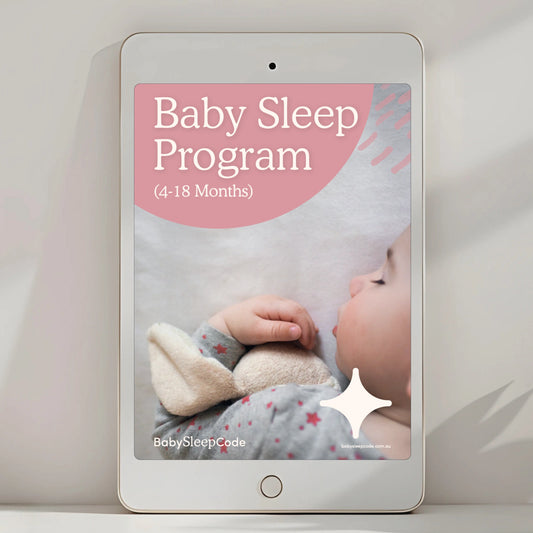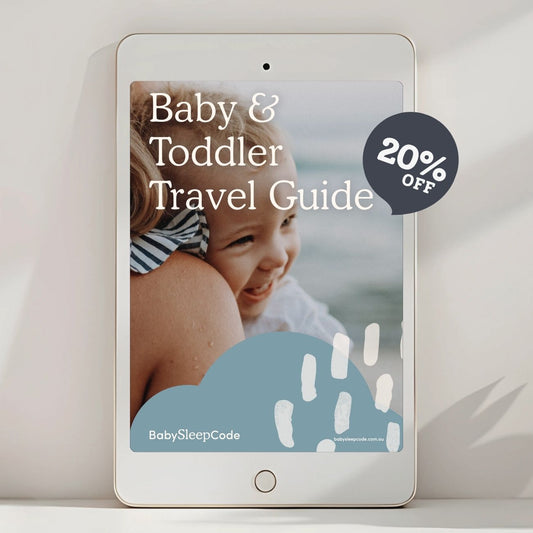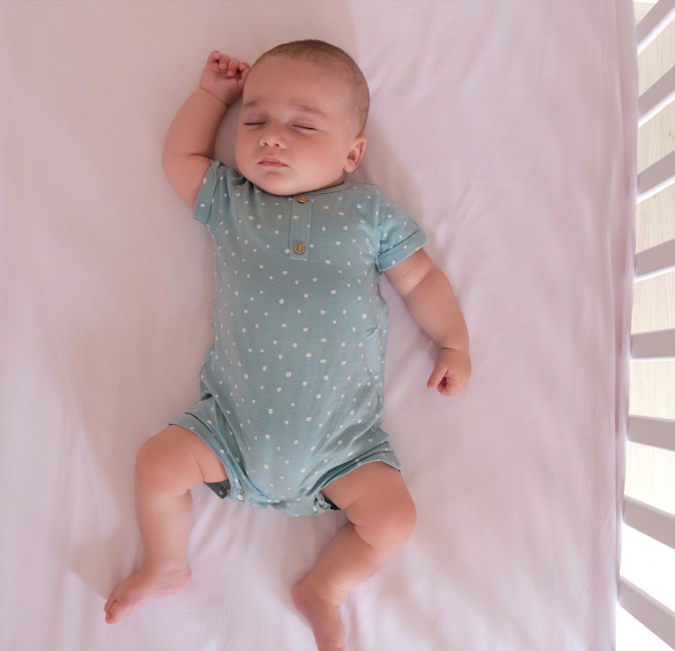Wake windows are a great way to help you understand the ideal time to put your baby down for sleep during the newborn months. Knowing how to get these right can make a world of difference to your newborn’s sleep quality. Wake windows help ensure that your baby has built up the ideal amount of sleep pressure—neither undertired nor overtired—so that they’re easy to settle and more likely to take a decent nap. Having enough awake time throughout the day will also help them sleep well overnight.
How long should newborns be awake?
Are you worried your newborn has been awake too long? There is a lot of misinformation (or perhaps miscommunication) about newborn wake windows.
Yes, it’s true that in the first few weeks, newborns have very short wake windows, typically no longer than an hour, as they need to save all their energy for growth. The early days can feel like Groundhog Day. Your baby will wake, feed, poop, and then drift back to sleep, only to repeat this cycle what feels like moments later.
But don’t stress if your baby has random alert periods where they’re more wide awake than usual. This is very common and will pass with time as their biological sleep rhythms become more regular.
If your baby is really upset during these times, read our blog on avoiding the witching hours for tips.
When do newborn wake windows increase from an hour?
Newborn wake windows start to increase from an hour between 3 and 6 weeks old. By this time, a baby can handle being awake for longer periods. Parents will notice that their baby starts to have more alert and active periods, making it easier to start following a (flexible) sleep routine.
Newborn wake windows by week:
Newborn wake windows will vary slightly across the day, and when looking at wake windows, it’s important to consider nap length as well. All of this and more is covered in our Newborn Sleep Guide. But as a loose guide these are the wake windows by week that we recommend:
- Weeks one to three: 45 minutes to 1 hour max
- Weeks three to four: 1 hour 30 minutes max
- Weeks four to eight: 1 hour 40 minutes max
- Weeks eight to twelve: 2 hours max
Is it better to follow newborn wake windows or tired signs?
Parents are often told to watch for tired cues, but this can be tricky, and not all babies will show clear signs. Parents can mistake boredom or fussiness for tired signs and try to settle their baby to sleep even if they’ve only been awake for a short time.
And on the other hand, if your baby doesn't have super obvious tired cues, they might go into their overtired zone without you even realizing. This is why we recommend following wake windows rather than relying solely on tired signs.
Read more on when does a wake window start, or does a wake window include feeding time.
How to keep a newborn awake during wake windows
Most babies will have a lull in energy around the one-hour mark, but it’s important to try and stretch them out as close as possible to the recommended wake window. Otherwise, if you settle them to sleep too early, they’ll typically only take a short nap as they haven’t built up enough sleep pressure to sleep soundly. Too many short naps throughout the day can create overtired babies who are extremely cranky by bedtime.
If you’re just starting to follow longer wake windows, you might find it tricky to keep them awake for the full time. Here are a few tips to help:
- Chat to your baby, make eye contact, and smile.
- Change their diaper or undress them so they’re not too warm.
- Move around the house or take them outside.
- Feed them at the beginning of their wake window so they’re not as sleepy during their feed.
Want to find out what the ideal wake window and sleep routine is for your newborn?
In our Newborn Sleep Guide, we provide parents with flexible and detailed sleep routines that change week to week to meet their baby’s changing developmental needs.
“You understand your baby a lot more and everything just clicks. The routines are super easy to follow and my baby is a lot more comfortable and settled with a routine.” Sophia, L
"I bought this guide when my baby was 3wo. It changed everything, more predictable days and a happier baby. The routines are necessary and it’s amazing how wake windows are right on the spot! Since my baby was 10wo started to sleep all night without feeds!" Diana

